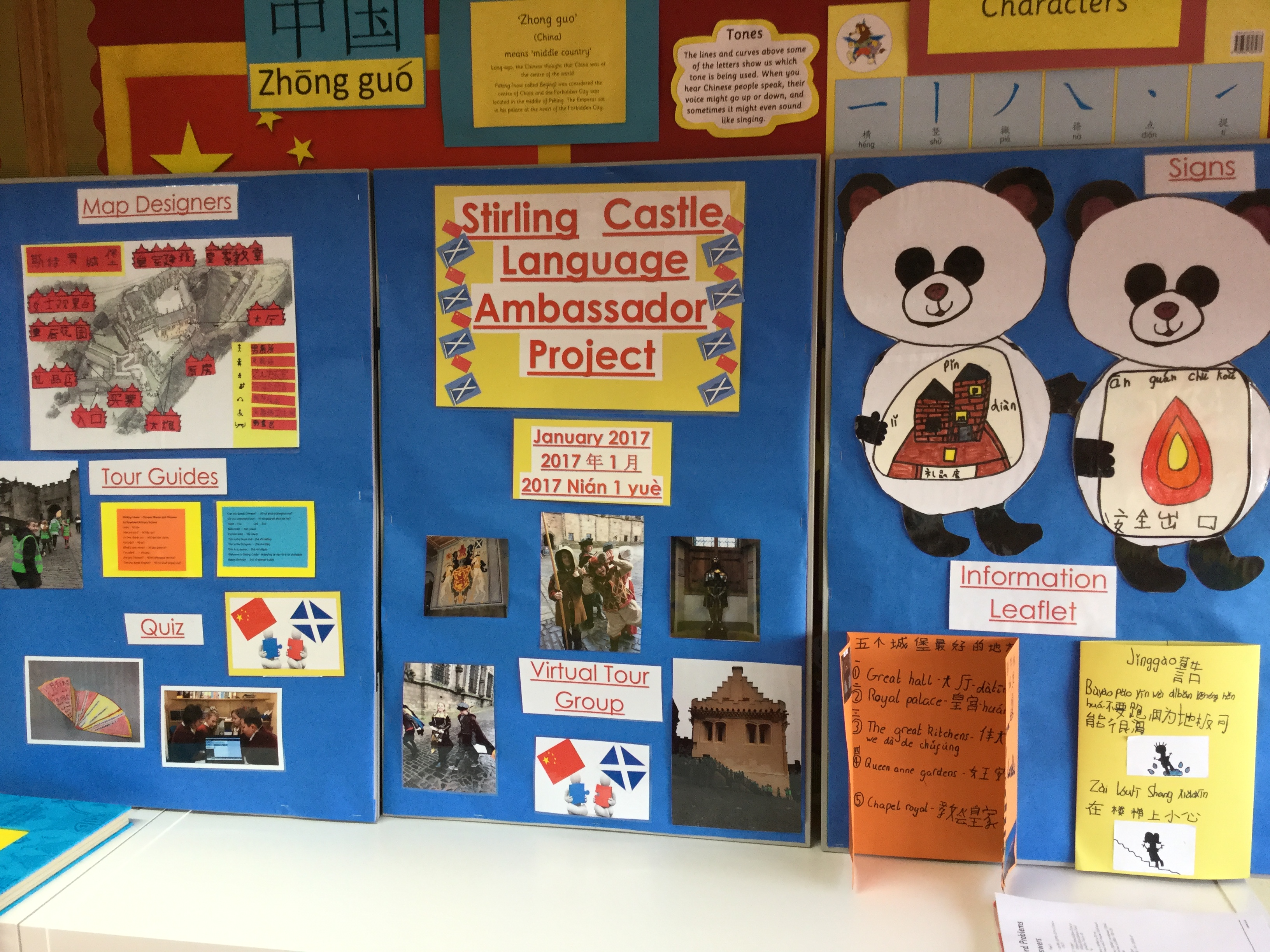The partners worked together to devise a project with the aim of making Chinese language learning interesting and relevant, as well as enhancing P5 pupils’ understanding about the world of work.
Pupils were given a tour guide’s perspective of life working at Stirling Castle. The fifty-five P5 pupils chose to focus their subsequent work around helping the castle’s staff make their many Chinese visitors feel welcome with a particular aim of teaching the tour guides a few key phrases in Chinese. However, the project soon expanded to encompass other areas of the curriculum, enabling pupils to develop their literacy and drama skills as well as Chinese and employability skills.
The pupils were divided into six groups. Each group was led by a teacher and decided what aspect of supporting Chinese visitors in Stirling Castle they were going to focus on:
- Group 1: Map designers
- Group 2: Tour guides
- Group 3: Design of a quiz
- Group 4: Virtual Tour Group
- Group 5: Signs
- Group 6: Information leaflet
Pupils visited the castle in order to get a better understanding of why and to what extent languages are used in the tourist industry and how they can enhance employability skills.
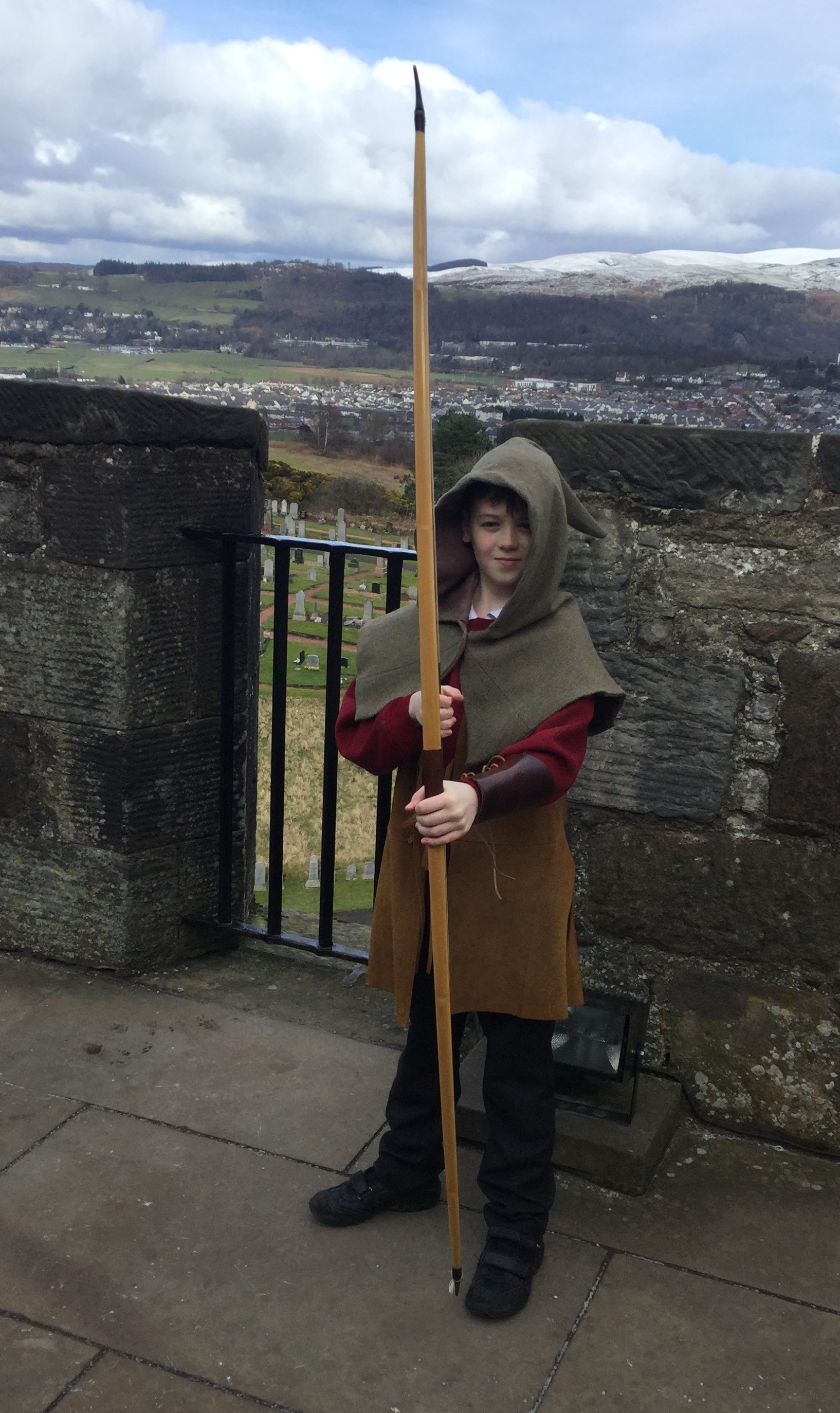
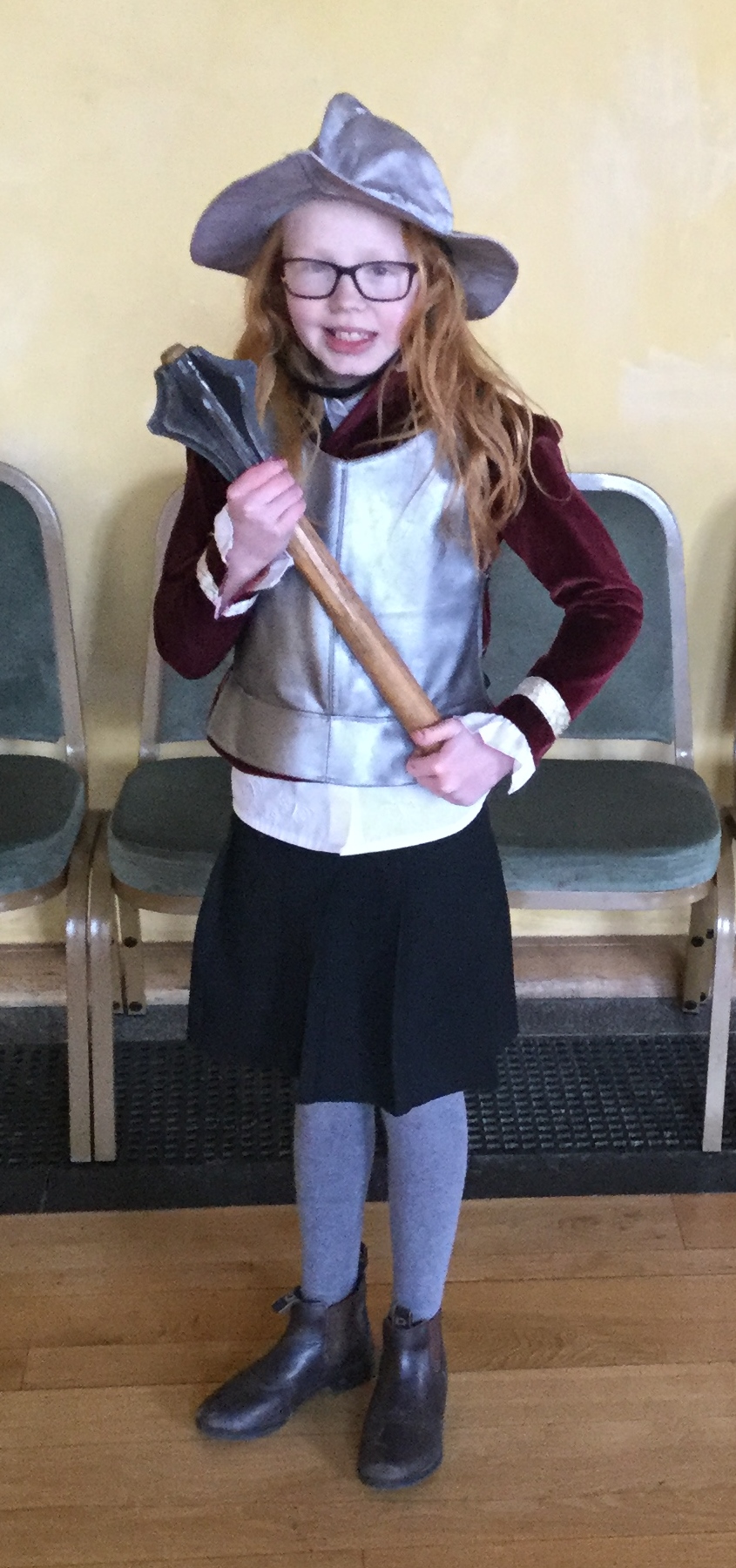
Pupils explored what might be useful for visitors and identified a need for signage in Chinese. They then used their creative skills to design these signs in the shape of a panda.
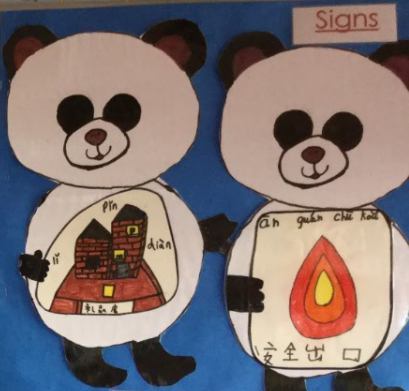
Pupils discovered what is involved in making a film, considered possible story lines and how these might relate to the history of the castle. The castle was able to provide costumes for the pupils and support the filming. Watch the film on YouTube.
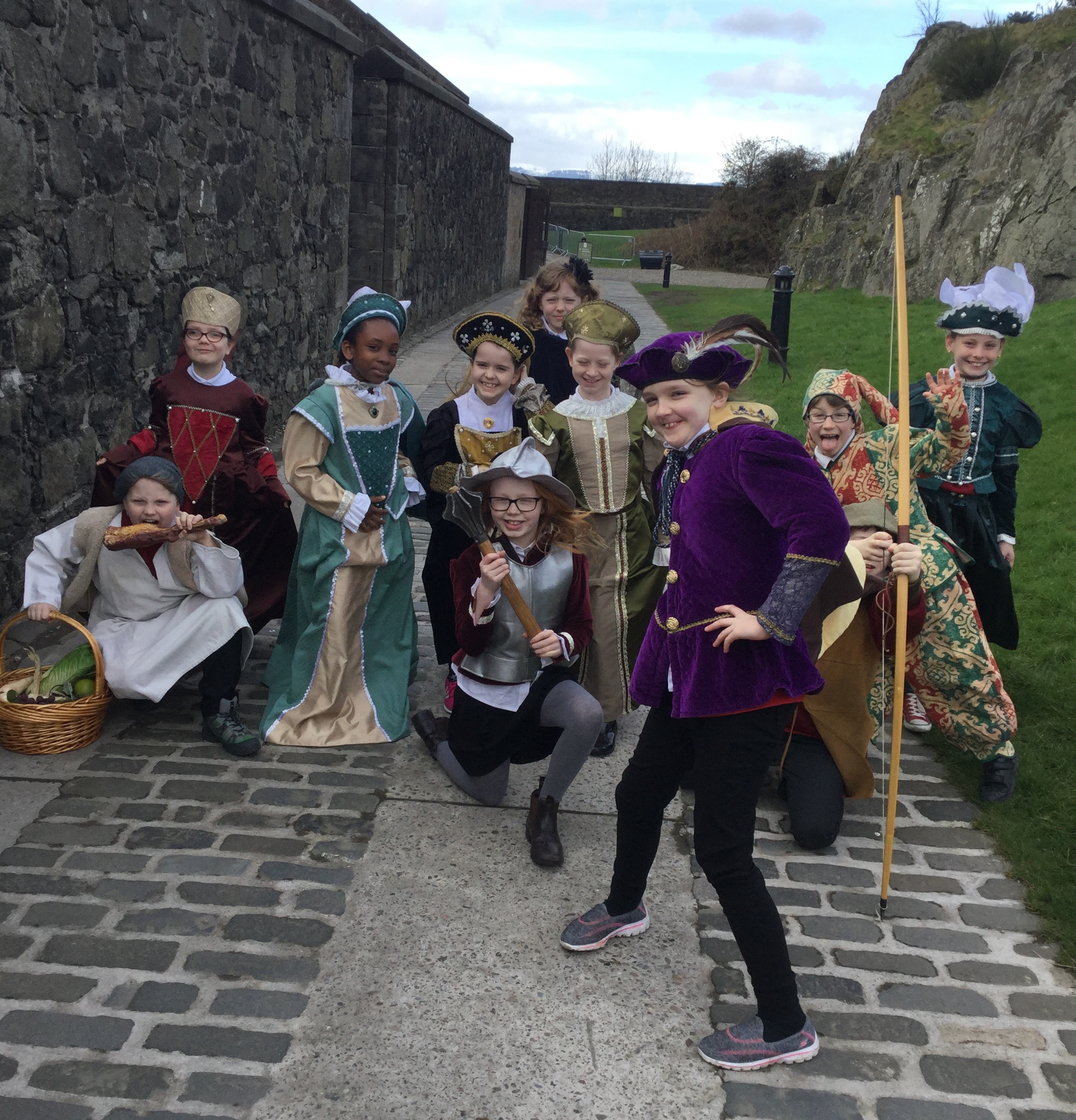
A similar process was followed by the group who looked into how to create a podcast, with pupils deciding on, preparing and performing the script. Thinking about what and how to express ideas and creating an interesting podcast all supported the development of literacy skills and allowed pupils to work as a team to decide what to include and what to edit out of the final podcast.
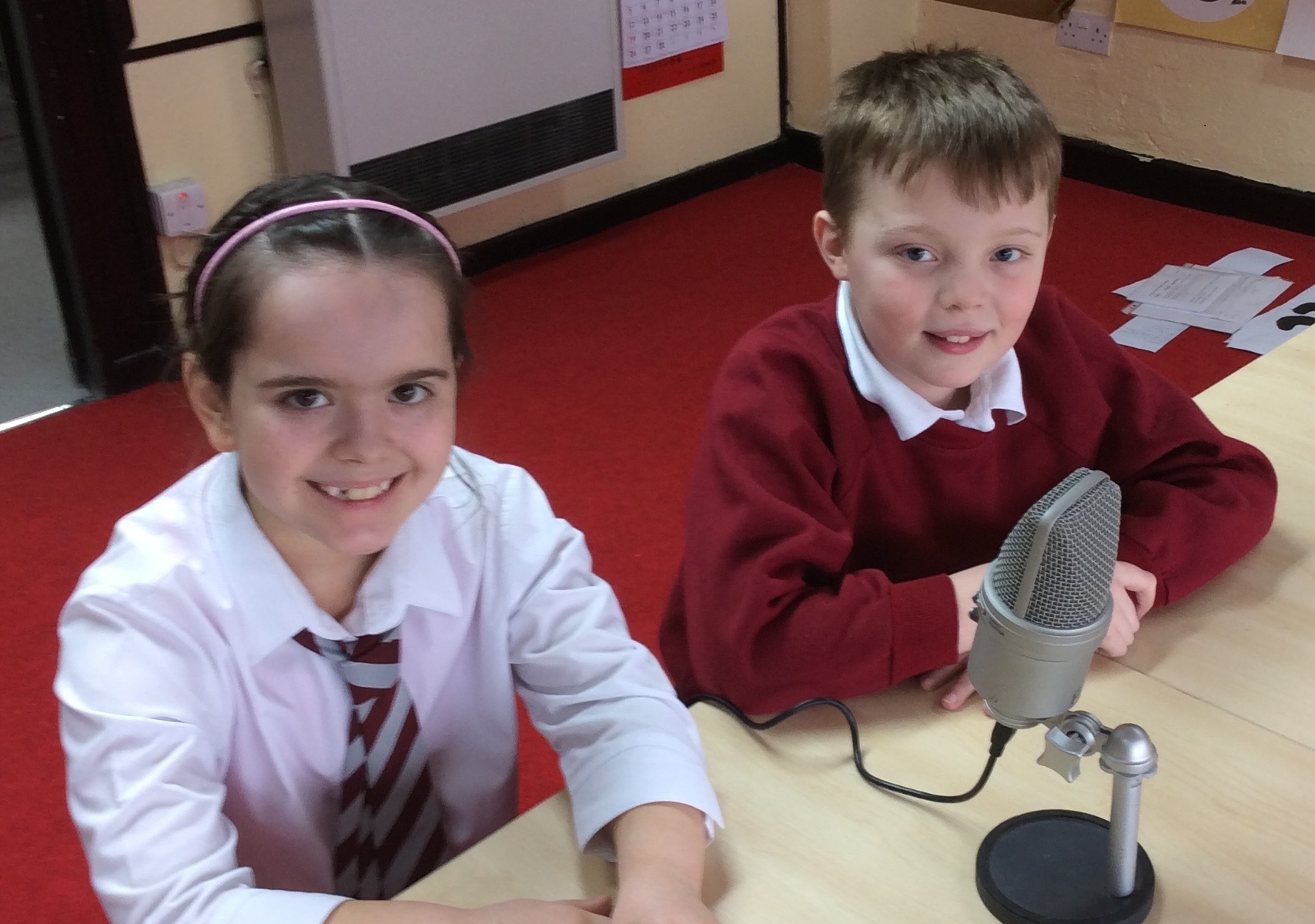
Access the Braehead Primary Languages Café podcasts.
Another group designed ‘help cards’ for castle staff to use to support them in greeting visitors in Chinese. Pupils also delivered presentations to teach staff simple Chinese words and phrases for welcoming visitors. This proved to be very popular with both staff and pupils.
Mairi contributed to pupil feedback on the project: “The virtual tour is a tour of the castle without leaving your seat. We act out a few key scenes from the castle's history and show some places such as the courtyard, dungeons and the Great Hall.”
Katie, meanwhile, worked with the tour guides: “We went on a tour to find out what we needed to teach. We took notes and we made presentations. At the end of the project we presented them to the tour guides and made little booklets with the phrases on them in case they forget.”
HES Education Officer, Kirsten Wood, explained how the tour guides had benefited from the project: “Stewards learnt a bit of Chinese taught by the pupils and were given a laminated card with some phrases on it to use in tours. We had a great session with pupils and stewards today.”
Some examples of the work produced can be seen in the Confucius Classroom below:
